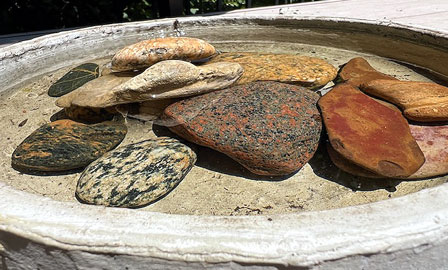
A Chrysalis Breaks
Monday morning, resuming my ordinary life, two cups of dark roast, reading and now a bit of writing here at Starbucks. Agreeable conversation with two friends is welcome. I am grounded by others… I know that to be so from experience. Friends remind me I am not “that” guy I assumed that I was.
I returned to a dog-eared copy of the Tao Te Ching. Several translations of this classic of Chinese philosophy are available. Years pass, time and circumstance add up, – I am different, transformed by the flow. It’s as if I’ve opened this book now for the first time.
To the point, am I nothing other than an eddy, a conscious feature in what is likely a greater composite of consciousnesses? Some examples, – cups, paper or ceramic for coffee consumption; baristas; Starbucks patrons, some friends, all are potential friends; this polished wooden table top; the book I am reading, entitled Dao De Jing “Making This Life Significant” is a dynamic unity that I experience as “Starbucks”! . Lao Tsu indicates fluid relationship is bedrock, every element contains every other, like a gem, each facet reflects every other!
I suspect (I hope) that my thinking, that a “way of being me”, my style if you will, is shaped by the persistent “nudge” felt while reading this book by Ames and Hall. The authors precisely describe my native outlook on reality. Not unlike a chrysalis fractured by life’s friction, especially by the serrated edge of failure, the free-fall of expectations proven to be illusion – the shell continues to crack open, albeit slowly.
Here is a summation of my default POV. The struggle for release continues apace…
- Reality has an arche, an originative material, efficient cause.
- There is an overarching meaning, a logos, an organizing principle.
- Reason, theoria, is the rule.
- Reality is Law-abiding, full stop.
- Theios, or to say plainly, reality mediates divinity.
- Nous, translated “mind” suggests the ultimate intelligibility of reality.
The classical Greek terms in the list, a clue, this complex of ideas is inherited, culturally specific to the Greek understanding of cosmos: that there is a One behind the many.
The Taoist side-steps all of that.
1.
The tao that can be told
is not the eternal Tao.
The name that can be named
is not the eternal Name.
The unnamable is the eternal real.
Naming is the origin
of all particular things.
Tao te Ching by Lao Tsu, trans. by Stephen Mitchell